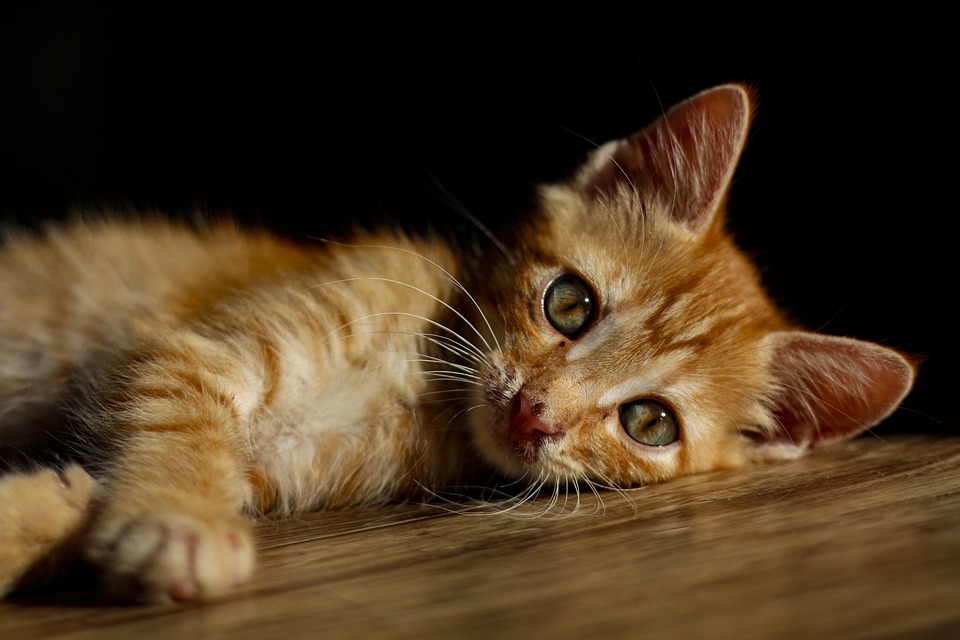Cats are known for their independent and sometimes mysterious nature. While they may seem calm and collected most of the time, they can also experience fear and anxiety. As a responsible cat owner, it’s crucial to understand the signs of fear or anxiety in cats and take appropriate measures to alleviate their distress. In this article, we will explore common indicators of fear or anxiety in cats and provide helpful tips to help your feline friend feel more secure and content.
Understanding Fear and Anxiety in Cats
Fear and anxiety are natural responses to perceived threats or stressful situations. Cats, being highly sensitive animals, can experience various triggers that lead to fear or anxiety. It is important to distinguish between fear and anxiety: fear is typically a response to a direct threat, while anxiety is a general feeling of unease or apprehension. Understanding these emotions will allow you to better recognize and address them in your cat.
Signs of Fear or Anxiety in Cats
Cats may exhibit a range of physical and behavioral signs when experiencing fear or anxiety. Keep an eye out for the following indicators:
1. Body Language
– Puffed-up fur
– Crouching or hunching posture
– Tail tucked between the legs
– Dilated pupils
– Ears flattened against the head
– Hiding or attempting to escape
2. Vocalizations and Behavior
– Excessive meowing, growling, or hissing
– Trembling or shaking
– Aggressive behavior, such as biting or scratching
– Avoidance or refusal to engage in normal activities
– Excessive grooming or self-mutilation
3. Changes in Routine or Habits
– Loss of appetite or overeating
– Decreased or increased sleep
– Avoidance of litter box or other previously used areas
– Excessive scratching or marking
– Increased aggression or fear towards other pets or people
Common Causes of Fear or Anxiety in Cats
Understanding the underlying causes of fear or anxiety in cats can help you address the root of the problem. Some potential causes include:
1. Environmental Factors
– Changes in the household, such as moving or rearranging furniture
– Exposure to loud noises, such as thunderstorms or fireworks
– Lack of proper socialization during kittenhood
– Introduction of new pets or unfamiliar people
2. Health Issues
– Chronic pain or discomfort
– Medical conditions affecting the nervous system
– Side effects of certain medications
– Aging-related cognitive decline
3. Traumatic Experiences
– Previous abuse or neglect
– Accidents or injuries
– Witnessing or being involved in aggressive encounters
Tips to Help Calm and Comfort Your Cat
Here are some strategies to help your cat feel more secure and reduce fear or anxiety:
1. Create a Safe Space
– Provide a designated area with hiding spots and comfortable bedding
– Set up vertical spaces, such as cat trees or shelves, for climbing and observing
– Use pheromone diffusers or sprays to create a calming atmosphere
2. Provide Enrichment and Mental Stimulation
– Offer interactive toys and puzzles to keep your cat engaged
– Play gentle and interactive games to build trust and confidence
– Provide scratching posts and toys for appropriate outlets of energy
3. Establish a Routine
– Stick to regular feeding times and provide a consistent schedule
– Maintain a clean litter box and offer multiple options in different locations
– Provide a predictable environment to reduce uncertainty and stress
4. Try Calming Products or Therapies
– Consult with your veterinarian about using pheromone-based products or supplements
– Consider alternative therapies like acupuncture or massage, if suitable for your cat
– In severe cases, your veterinarian may prescribe anti-anxiety medications
Frequently Asked Questions (FAQs)
Q: Can cats suffer from separation anxiety?
A: Yes, cats can experience separation anxiety when separated from their owners for extended periods. Symptoms may include excessive vocalization, destructive behavior, or inappropriate elimination. Gradual desensitization and providing environmental enrichment can help alleviate separation anxiety.
Q: How can I help my cat overcome fear of loud noises?
A: Create a safe and quiet space where your cat can retreat during loud noises. Consider using white noise machines or soothing music to mask the sounds. Gradual exposure to the noise at a low volume, paired with positive reinforcement, can help desensitize your cat over time.
Q: Is it normal for cats to be afraid of strangers?
A: Yes, it is common for cats to be wary of unfamiliar people. Provide your cat with a safe space to observe new visitors from a distance. Encourage visitors to avoid direct eye contact and sudden movements. Gradual introductions and positive reinforcement can help your cat become more comfortable over time.
Q: Should I consult a veterinarian if my cat shows signs of fear or anxiety?
A: Yes, consulting a veterinarian is recommended if your cat’s fear or anxiety significantly impacts their quality of life or becomes unmanageable. A thorough examination can help identify any underlying medical conditions contributing to their distress, and your vet can provide tailored advice and potential treatment options.
Remember, each cat is unique, and what works for one may not work for another. Patience, understanding, and creating a safe and supportive environment are key to helping your fearful or anxious cat live a happier and more relaxed life.








